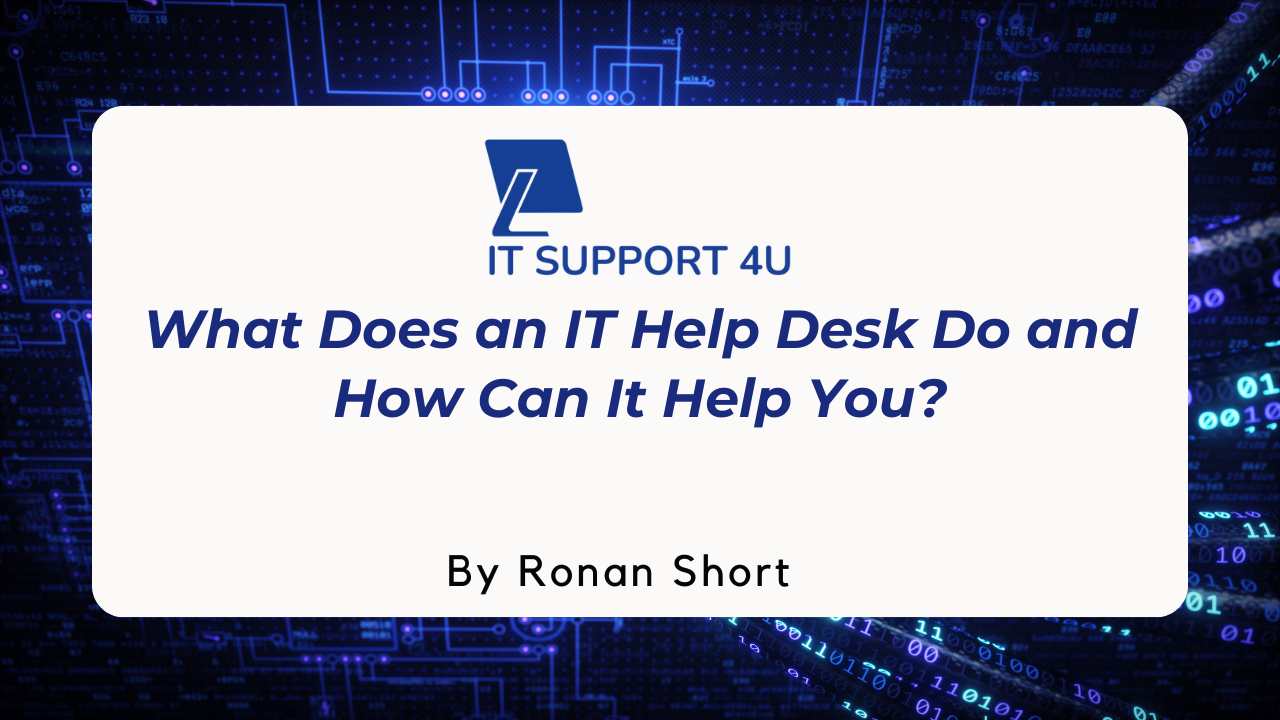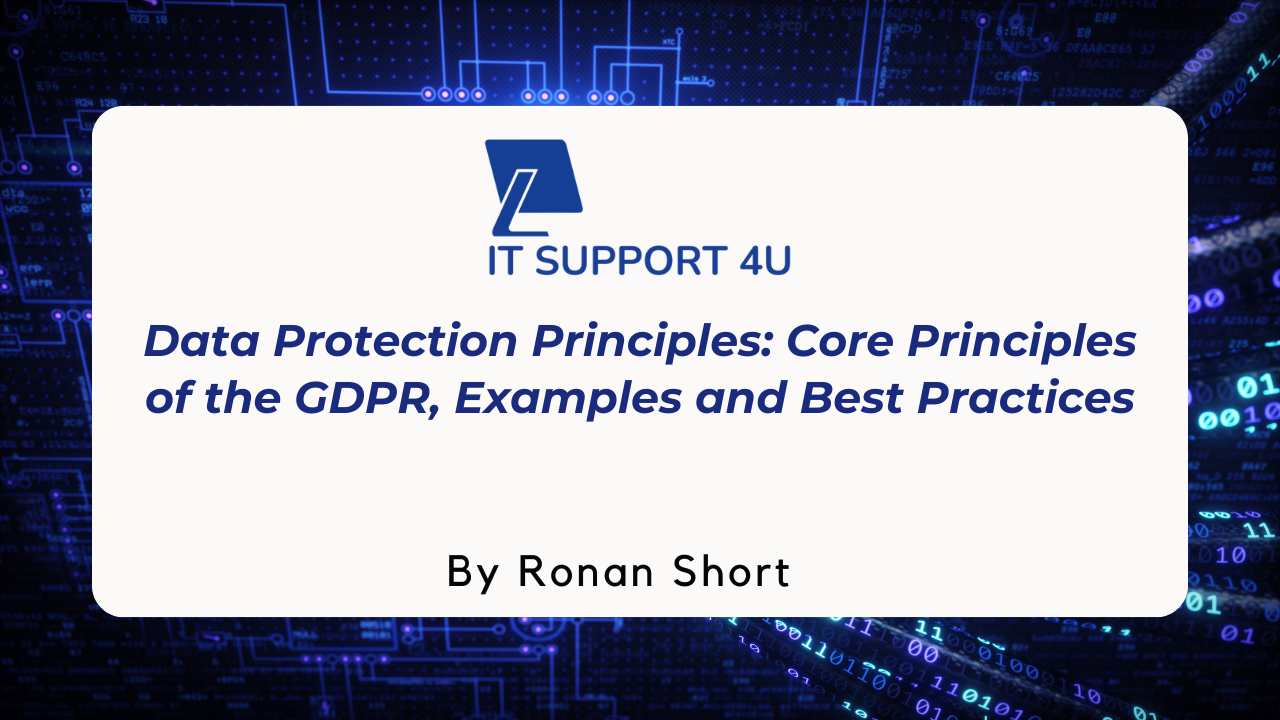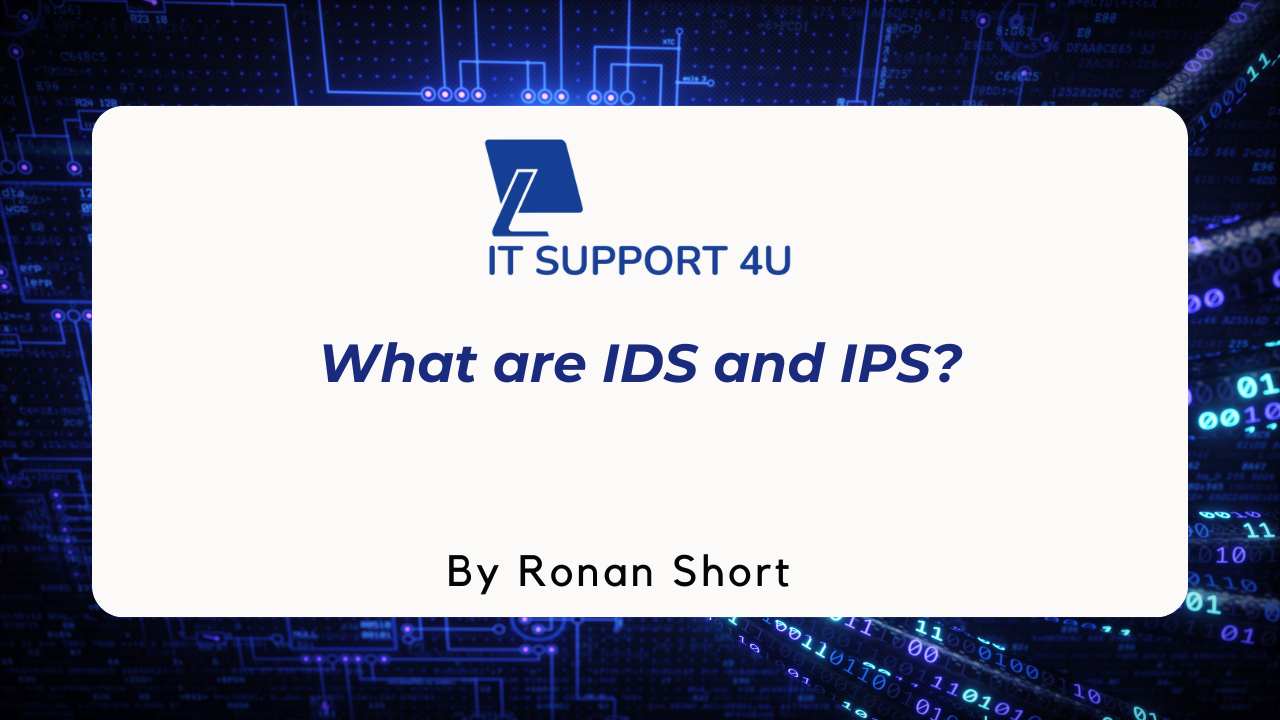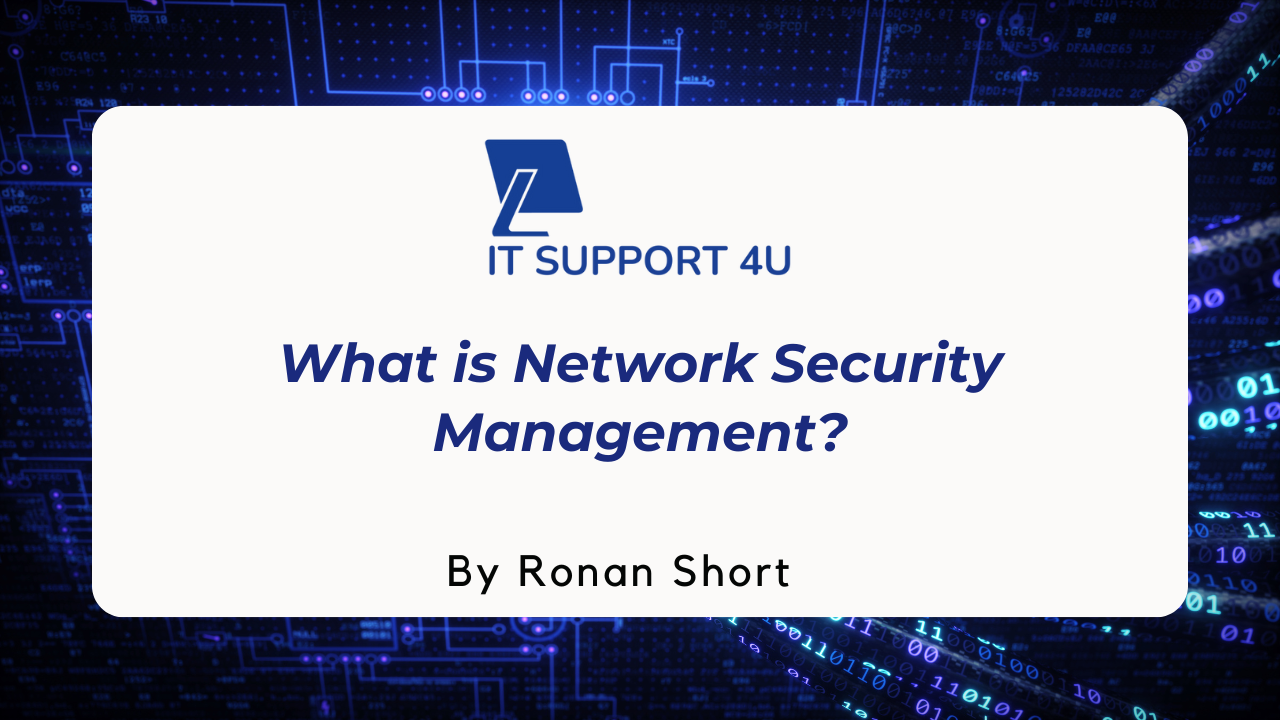Malware protection guide for business. I.T. Support4U explains the techniques that cybercriminals engage in to exploit your online accounts & devices.
Every day, we are confronted with news about hacking, data breaches and scams aimed to target a world that is currently dependent on I.T. to work, communicate, purchase, and manage bills/banking.
It is important for everyone to learn exactly what techniques and tactics Cyber-criminals use to target both individuals and businesses.
Malware Protection Guide: viruses, ransomware, spyware, trojans &worms.
Malware is malicious software that once downloaded gains unauthorized access to your computer and other connected devices. It can then harvest the data or corrupt the operating system so the computer no longer functions properly.
Usually, Malware is distributed through email attachments or infected websites and links. Once the attachment is opened or when the link is clicked; the malware will automatically install itself. The following includes the different kinds of malware that can infect your devices!
Ransomware
Ransomware allows the hacker to gain access to the computer and encrypt the files. The authorized user will then be sent an email that will demand a payment to be made for the information to be released.
Many cyber-criminals demand that this is paid in the form of a cryptocurrency like Bitcoin. This is because cryptocurrencies are harder to trace which makes it difficult for these criminals to be tracked and charged.
Businesses in particular are vulnerable to this form of cybercrime. Hackers are indiscriminate to the scale or profitability of the enterprise, if a weak point is found in the I.T. system it will be attacked.
Spyware
Once installed spyware will access the infected computer and mine a treasure trove of information and personal details. This data can be sold on the dark web or used by hackers for purposes that suit their agenda.
Spyware will gather any information that is entered into the computer such as passwords, personal identification numbers and information, credit card details etc. without the victim being aware.
Viruses
Viruses are the most common type of malware; it is self-replicating and can travel through programmes. Viruses spread from one computer to another using various pathways such as a local network, file-sharing systems, email attachments and disks.
Most viruses are attached to an executable file. It always best to take precautions before opening an attachment or file like this because once given permission to install the malware can override the security on the computer.
Worms
This software can enter a computer network by exploiting a vulnerability in the operating system or gain access through a “phishing” email. Once the malware has entered the system it can travel through the network wreaking havoc.
Some advanced worms can carry ransomware or other encryption tools which will cause damage to the computer making it impossible to perform any simple task.
Trojan Malware
Just like the myth Trojan malware software appears to be a useful piece of free/cheap downable software, a gift from a hoax website. However, once installing the seemingly harmless programme, the Trojan malware infects the computer.
It will attack the operating system so that it makes it extremely difficult to perform many tasks with numerous pop-ups and corrupting files. Trojan malware can also create “backdoors” or identify vulnerabilities in the OS to enable hackers to access the files on the computer.
So, if you ever see free software that guarantees that it 100% genuine think twice……Trust us, no tech company is going to give you anything for free without a catch or price attached!
Malware Bots
Bots are automations that perform specific tasks like providing information or gather information needed to access a service. Think of when you are trying to reduce your tv package.
You are confronted by pop-up chats from a Bot before getting to an actual human. While many large service providers use this automation, there are malware bots trolling the internet, looking for access points into I.T. devices.
These “bad” bots are controlled by a central server. Once, a bot has gained access to a device; it can gather passwords, financial/personal information, and log keystrokes which are then sent back to the central server.
This is controlled by the Cyber-criminal. Advanced Bots can create “back-door” access points for hackers, launch DDoS attacks and perform crypto-mining activities. The network of malware bots and the compromised devices in which they silently infiltrate is called the Botnet.
Malware protection: How to protect your devices from Malware?
The most important malware protection measure to take for personal devices and business’s I.T systems is to educate yourself and your colleagues on how malicious software can infect an entire network.
If everyone is aware that most malware infections are caused by human error by clicking impulsively on a link or email attachment without checking the credentials; then this is a good starting point to develop a cyber-safe workplace.
Malware protection Tip 1: I.T. and Cyber-Security Policy.
Every office should have an I.T. and Cyber-Security Policy in place which outlines the importance of following good cyber-safety practice regarding; emails, passwords, back-ups and performing updates as required.
Malware protection Tip 2: Cloud Security, Back-ups & RMM Scanning
Cloud security is an effective option for businesses to protect their critical files and that of their clients.
Services such as Datto can provide you 24/7 remote monitoring and scanning while also creating back-ups of files that are continually changing on a daily basis.
The Datto platform offers flexibility to employees who may be working staggered days in the office to access work files remotely while keeping all the data secure from threat.
Cloud security also is an effective means to provide a set of clean, backed-up files if there was an attack made on the I.T. system. By ensuring that the business has an updated backup the recovery time and financial cost is greatly reduced in comparison to those without any protection.
Contact Us: Cloud Security & Datto Workplace
Malware protection Tip 3: Anti-Virus and Endpoint Security
It is essential for everyone to invest in anti-virus software for basic protection. Anti-Virus detects and removes malware but it is not as sophisticated as Endpoint protection.
If you own a business it is recommended to add that extra layer of protection by using Endpoint security.
The difference between standard anti-virus and endpoint protection is that endpoint security runs anti-virus operations, maintains firewalls, anti-malware detection, IDS (Intrusion Detection Systems) and performs “Sandboxing” (A test used to check any vulnerabilities in the CPU that might come under attack).
It is clear that Endpoint security is the superior of the two and is the future of cyber-security. I.T Support 4U is an affiliate of ESET Security Systems which provides enterprise-grade anti-virus and endpoint security.
Contact Us: Anti-Virus & Endpoint Security
Malware protection Tip 4: Multi-factor Authentication/2FA
2-factor authentication is another means to protect online accounts. As mentioned previously there are bots online that will try to crack the login details of various accounts.
Hackers may also have accessed certain information and passwords from other online profiles you may have and attempt to reuse them to access multiple accounts.
By using 2FA the hacker will not be able to just input the username and password and instantly gain access. Instead, an alert will be sent to a chosen device which will either ask a specific question only you can answer or display a pin number that needs to be typed in before access can be granted.
I.T. Support 4U specialises in providing your business with the highest standard of cyber-security available. Our cloud-based platforms enable your business to operate as normal even if the current circumstances in which we live today are not….
Get an IT Plan Today!













